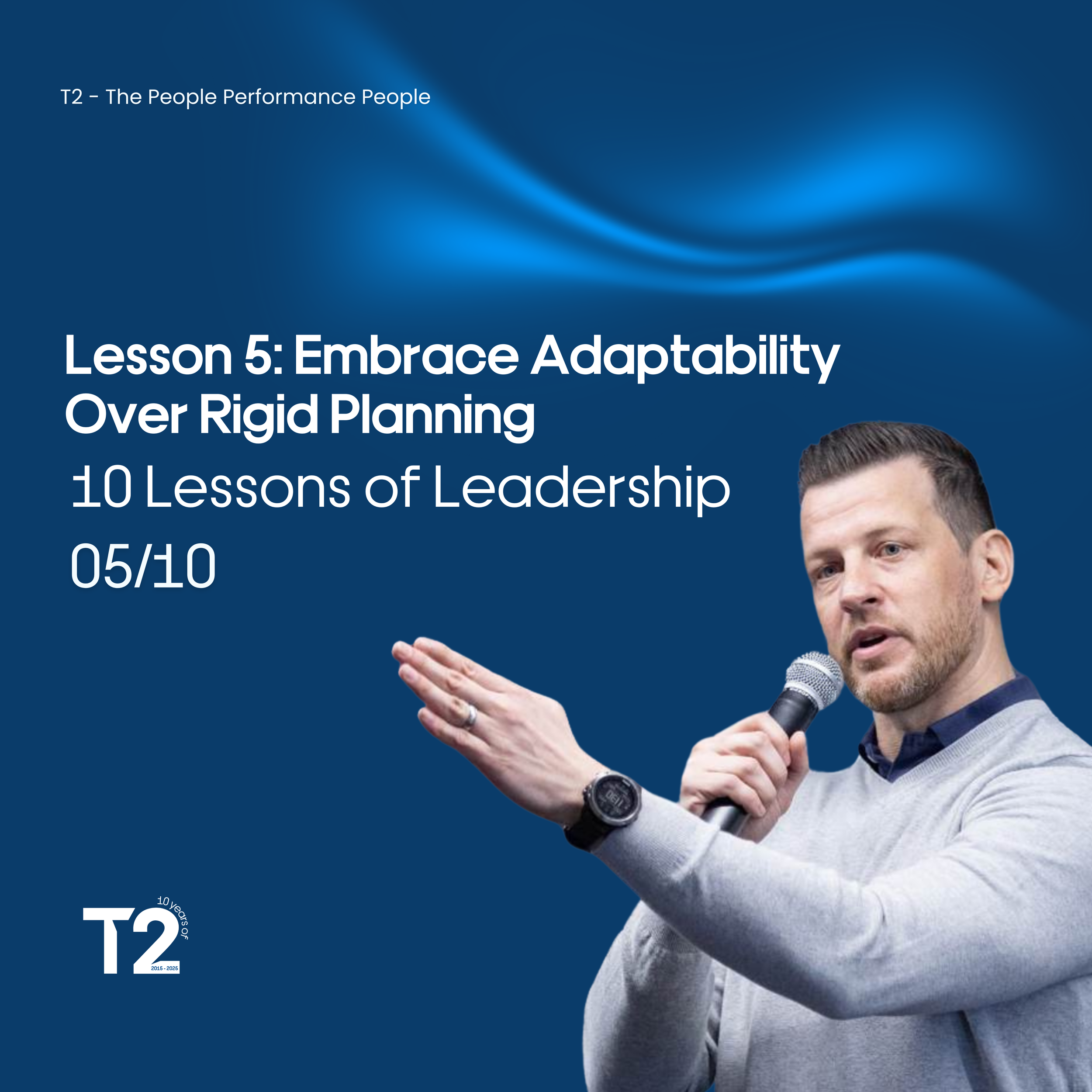Lesson 3 by Martin Johnson - Invest in understanding your people as individuals
Great leadership has never been a one-size-fits-all pursuit, because people are not one-size-fits-all.
Teams are made up of different personalities, motivations, strengths, and communication styles, and leaders who take the time to understand these differences unlock deeper trust, stronger engagement, and far better performance.
When leaders assume everyone needs the same approach, messages get lost, relationships weaken, and potential goes untapped. But when leaders adapt their style to the individual in front of them, everything changes: conversations become clearer, feedback lands better, and people feel genuinely seen.
At T2, we believe personalisation is the future of leadership. Understanding the human behind the job title is what allows leaders to stretch, support, and challenge people in the way that works best for them.
It’s not about changing the goal; it’s about changing the route to get there.
This principle sits at the heart of Lesson 3, where Martin Johnson explores why investing in individual understanding isn’t just good leadership, it’s essential leadership.
Martin Johnson on Lesson 3: Understanding your people as individuals
Effective leadership isn’t about treating everyone the same – it’s about understanding each person’s unique make up and adapting your approach accordingly. The goal remains consistent, but the path to get there varies.
We advocate for personalised leadership approaches based on understanding each team member’s personality and communication preferences. The outcome may be the same, but the method of achieving it should be tailored to the individual.
That means the same message delivered to different people needs to be adapted to their personality and communication style to be truly effective.
This individualised approach requires leaders to invest time in truly knowing and understanding their team members. It means understanding not just their professional capabilities, but also each individual’s psychological drivers, communication preferences, and personal circumstances that can affect their performance.
Psychometric testing and regular one-on-one conversations are great in building these individual profiles. Some team members respond well to direct feedback; others need time to process and reflect. Some are motivated by public recognition; others prefer private acknowledgement.
The military taught me a great deal about group dynamics and the importance of understanding individual personalities within team contexts. This understanding becomes particularly crucial during change programmes or challenging periods, when leaders who know their people can predict how individuals will respond to different situations.
The investment in individual understanding pays dividends in team performance, retention and engagement. People feel seen and valued when leaders adapt their style to match individual needs, creating stronger relationships and better outcomes.
More About Martin Johnson
Martin Johnson is the founder and CEO of T2 The People Performance People, a consultancy at the forefront of leadership development, working with elite sports teams, global businesses, and public sector organisations. His journey from the Royal Navy to leadership consultancy has shaped a philosophy that blends performance psychology with real-world leadership practice.
Now celebrating its 10th year, T2 partners with organisations including INEOS Grenadiers, Manchester United, Specsavers, and Reckitt, helping leaders build confidence, collaboration, and capability that lasts.
This article is part of our 10 Lessons of Leadership series, celebrating 10 years of T2. Each month, we’ll share a new lesson from our CEO, Martin Johnson, designed to give leaders practical insights they can apply straight away.




